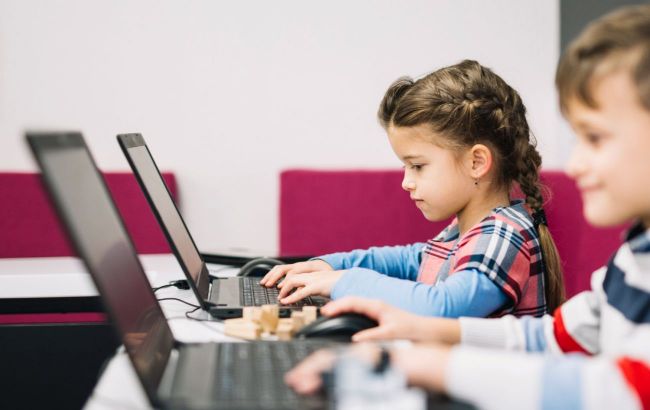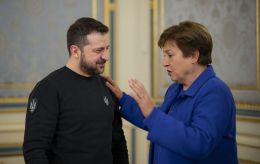AI for education: Controversy over children using ChatGPT
 AI for education: Controversy over children using ChatGPT (Freepik)
AI for education: Controversy over children using ChatGPT (Freepik)
With the rise of ChatGPT, many schoolchildren and students have started using it while doing their homework. There are already serious concerns that the widespread use of such AI-based technologies in education may lead to the dulling of the younger generation.
Ukrainian Doctor of Sciences in Physics and Mathematics Oleksandr Letychevskyi shares his insights in an interview with RBC-Ukraine on using AI as a tool for education.
Can AI be applied in education?
"Using ChatGPT is allowed in British universities, only as a 'reference book' when writing papers, but it cannot be used in student works. There are already programs that can determine whether a text was written by a human or ChatGPT," says the expert.
Letychevskyi adds that these technologies can be used as hints because the chat processes a large amount of knowledge, and one can draw conclusions, which can be useful. However, they should be used consciously, analyzing correctness.
"Schoolchildren need to be allowed only to learn something with AI help, but they should do assignments by themselves," notes the scientist.
He also adds that AI-based technologies may sometimes make mistakes because they are still being improved. ChatGPT, in particular, may have its own "hallucinations" - providing information about events that never actually happened.
What areas is it appropriate to apply AI?
"AI can help in medicine. In our institute, there are excellent developments that allow analyzing X-rays of patients. AI can also be applied in forensics when the police need to distinguish faces in videos. In economics, certain scenarios can be modeled and predicted. In scientific research, AI should also be applied," says Letychevskyi.
But, he doubts using AI for creativity.
"If you're writing essays, it's already a matter of taste, unless you teach an individual style. Whether they will have any value, let literature experts decide. Once I enjoyed reading essays written by a machine in the 80s. They were very close to human ones," adds the scientist.
He also notes that AI can create incredible pictures, but it is unconscious creativity, there is nothing behind it. No soul, no human - it's all statistical methods.
"AI generates content based on what it was taught. It does not create anything new, but these pictures can be very spectacular. If one teaches a neural network music, it will generate melodies based on what has been shown. But we won't get Bach or Beethoven," says Letychevskyi.

